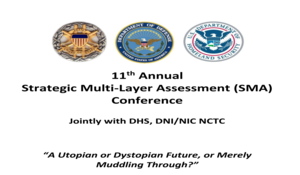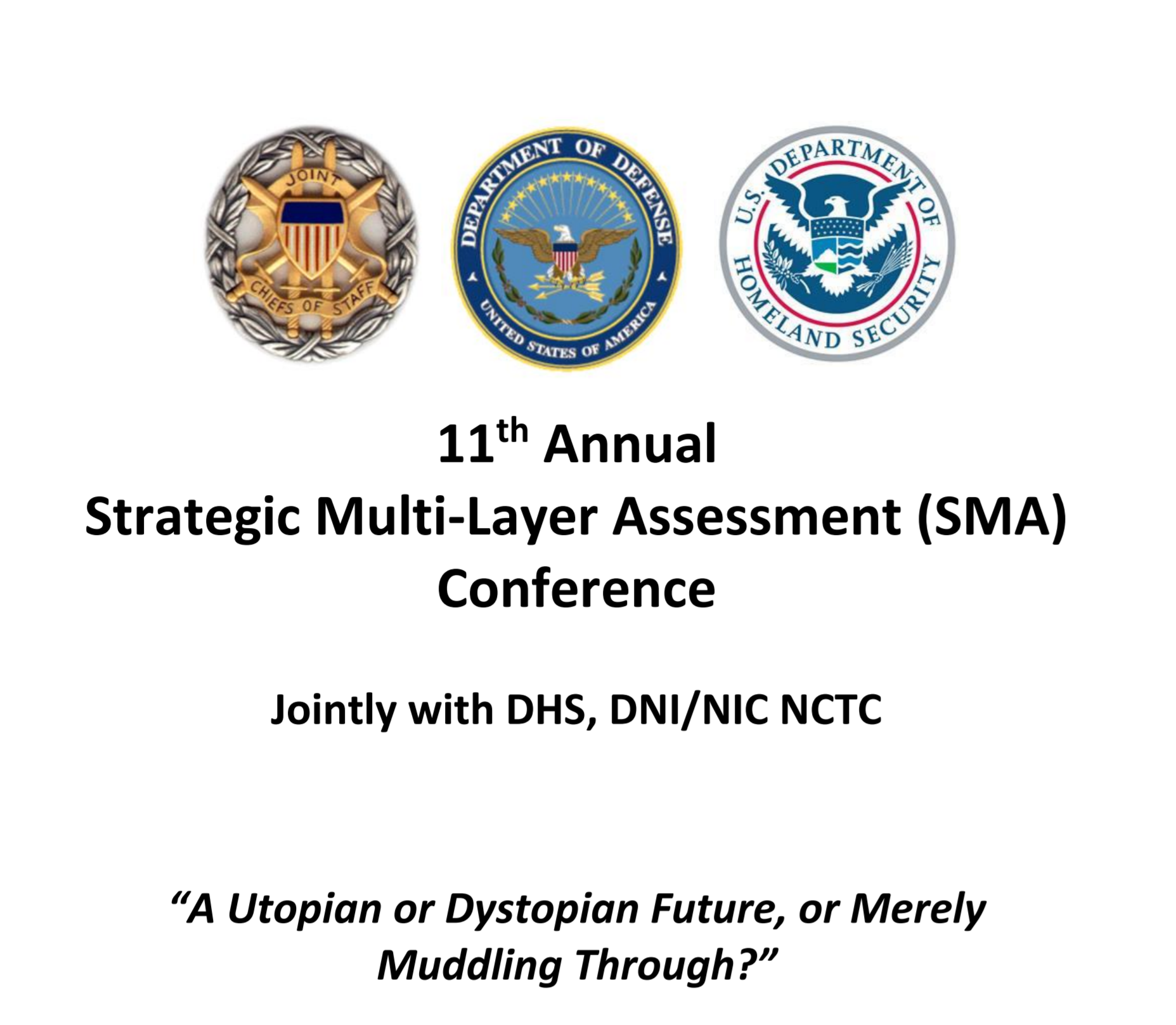11th Annual SMA Conference – “A Utopian or Dystopian Future, or Merely Muddling Through?”

11th Annual SMA Conference – “A Utopian or Dystopian Future, or Merely Muddling
Through?”
Author | Editor: Aviles, W. (NSI, Inc.).
Conference Theme
This Conference assessed what today we rightly or wrongly perceive as historically unprecedented changes from the perspectives of politics and history, sociology, biology, information science, and technological innovation. There is a large body of scientific work that supports the notion that human societies are complex adaptive systems with emergent properties that contain core commonalities, but the actions of which cannot be predicted with certainty. Given the properties of human cognition and social behavior, the question remains: How might nations and societies best position themselves to prepare for and manage the risks associated with rapid change under conditions of fundamental uncertainty? The conference speakers and panelists addressed these issues relevant to key domains and dimensions of global security.
Conference Overview
This conference embodied the multidisciplinary nature of the Strategic Multilayer Assessment (SMA) project, by tackling issues both existential and precise, from historical and future-oriented mindsets that are inward and outward looking, and through the analysis of experts that boast a vast portfolio of background and expertise. SMA conferences allow contributors significant bandwidth to contend with the core question of how the USG should think, understand, and plan a path to US prosperity in an environment where uncertainty dominates predictability. Many of this conference’s panelists based their subject matter on the fundamental notion that technological innovation is not only changing preconceived notions of national security, but the nature of society itself. Panelists also contended that many of the principles of warfare and human behavior remains the same; thus the vital task is deciphering where, and how, the USG’s calculus needs to adapt or to persevere.
The fields of innovation and technology explored in this conference were contextualized by what experts argued is a flawed appraisal of strategic landscapes that do not reflect new and unfamiliar forces. Doctrine and policy leftover from the Cold War have failed in many respects, but shifts in geopolitics are not wholly accountable for these shortcomings. The ubiquity and effectiveness of technology has, perhaps not changed the fundamental nature of conflict, but rather the personality. Many panelists suggest that the strategic landscape now favors the ability to influence allies and adversaries over our ability to implement quick and lethal force; furthermore, the path to such influence must begin with a recalculation in our strategy to reflect this reality. Assessing the importance of influence in the strategy, operations, and internal functions of the DOD must occur across the board from the policy maker, operator, analyst etc.
A theme of concern over the integration of emerging and under-utilized technology and knowledge into our systems, planning, and strategy was expressed throughout the conference spanning USG’s functions and theaters of operations. Recognizing the applicability of artificial intelligence (AI) in military applications, or analyzing social media in socio-political movements, or collecting data that reveals technological and cultural divides; is not enough. Quickly and efficiently transforming such advancements into useful tools and more competent strategy must be executed at a system level in order to maintain US superiority. Updating our complex systems, planning processes, and strategy still presents the inherent difficulty that is expected in any information environment; nevertheless, panelists detail notable results from these shifts and advise following the veins of success and learning from failed models and pursuits.

Comments